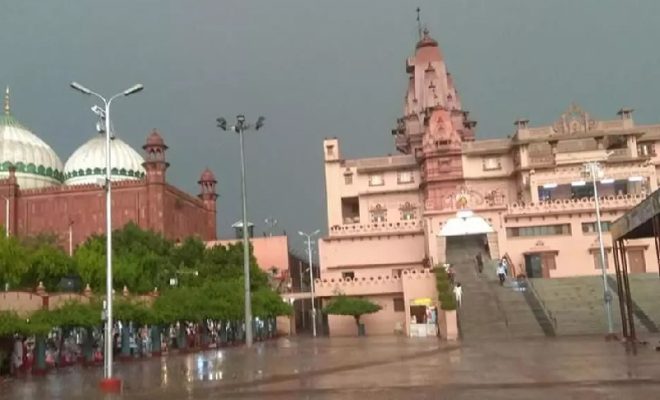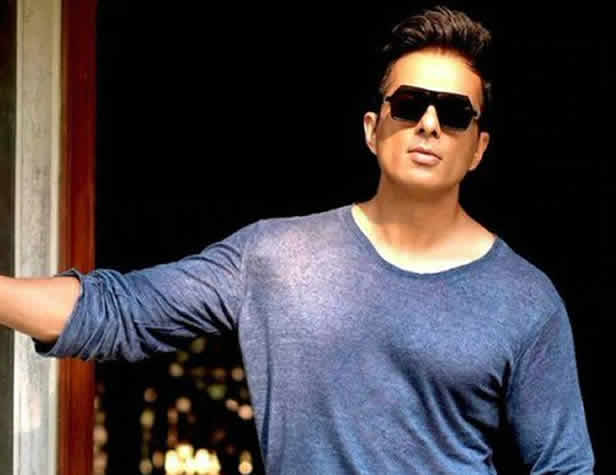What Is The Shri Krishna Janmbhumi Versus Shahi Idgah Mathura Dispute?

The ‘Shri Krishna Janmbhumi’ versus ‘Shahi Idgah Mosque’ Mathura dispute centers around a piece of land in Mathura, Uttar Pradesh. This land is believed by many Hindus to be the birthplace of Shri Krishna, a very honored personality in Hinduism.
The core of this dispute involves 13.37 acres of land. In the past, to resolve this issue, an agreement was made in 1968, dividing the land between the ‘Shri Krishna Janmsthan’ and the ‘Shahi Idgah Mosque.’ However, this agreement remains controversial.
History of The Site & Complex
Historically, the Shahi Idgah Mosque stands on a site that once housed an ancient temple. This temple, as per historical records, was demolished by the Mughal Invader Aurangzeb in the 17th century.
Aurangzeb, a Muslim invader, issued a decree in 1670 ordering the destruction of the Keshav Dev temple in Mathura in the month of Ramzan. Following this decree, the mosque was constructed using remnants of the destroyed temple.
The idols from the original temple were said to be buried under the stairs of the Begum Sahib Masjid in Agra. Aurangzeb also renamed Mathura to Islamabad during his reign, further erasing the city’s original Hindu identity.
Also Read: MoRTH Sets Ambulance, Helicopter Facilities On Highways For Emergency
Historical Facts & Evidence
Historical evidence of the temple’s existence includes a 162-year-old survey report by the Archaeological Survey of India, confirming that the mosque was built over an ancient temple.
Additionally, legal records from the British era acknowledged Hindus as the landowners of this site. Dr. Francois Bernier, in his book “Travels in the Mogul Empire,” also mentioned the beautiful temple that once stood in Mathura before its destruction.
Shri Krishna Janmbhumi (Janmsthan)
The Hindu perspective views the Idgah Mosque as occupying the exact spot where Devaki gave birth to Shri Krishna, making it the Shri Krishna Janmbhumi. Consequently, Hindus seek ownership rights over the entire land area.
Mathura Court & Supreme Court Order
Regarding the current status of the case, an initial petition filed in the Mathura Court was rejected under the Places of Worship Act 1991. However, a review petition was later filed, leading to the current decision by the Allahabad High Court to conduct a survey.
In recent developments, the Allahabad High Court approved a scientific survey of the Shahi Idgah complex. This survey will be conducted similarly to the one done at the Gyanvapi Temple in Varanasi. The Supreme Court has upheld this decision and refused to stay the High Court’s order.
This case is not just a legal matter; it’s deeply intertwined with religious sentiments and historical context. It’s crucial to follow the developments closely, as the outcomes will have significant implications for the community and the nation’s heritage.



